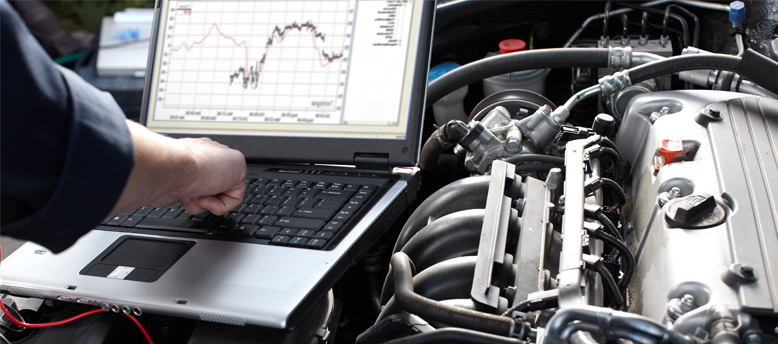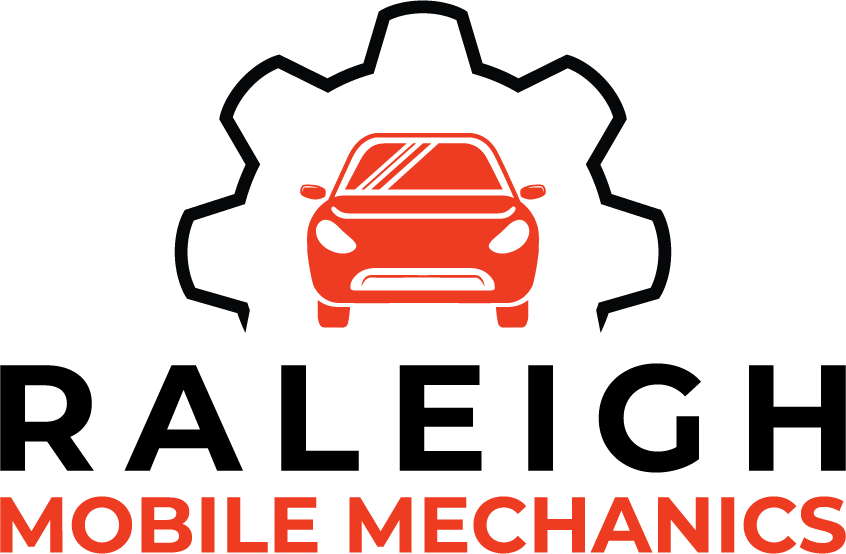Tire Repair
Safe driving has a lot to do with the condition of your tires. If one or more of your tires always loses air or has been punctured, it should be inspected by a professional mobile mechanic as soon as possible. The tire should be inspected both inside and out to determine if it can still be repaired or if replacement is better.
Inspect your tires at least once a month to check for any of the following:

- Uneven tread wear
- Cuts, bulges, or scratches
- Embedded dirt or stones
- Damage from impact
- Holes or punctures
If you see any of these, the tire has to be removed and inspected. Get advice from your local mobile mechanic if repair or replacement is needed.
- Dismounting and inspection in case of inflation pressure loss
- Flat-tire repair
- Repairs following industry standards
- Patching or plugging of tire interior for repair
- Tire and wheel assembly rebalancing
- Tire Pressure Monitoring System
- Tire Rotation
- Wheel Alignment
Transmission Repair and Service
Your car generates a lot of heat inside the transmission when you drive. Your car uses fluids to cool and lubricate all the moving parts to keep the safe operating temperature. The fluids are also essential to reduce the amount of heat, which is potentially harmful and also to prolong the lifespan of the transmission system. These fluids include brake fluids, power steering fluids, and transmission fluids.
Over time, your car’s fluids could lose the ability to clean, cool, and lubricate where they are needed and could lead to problems. Taking care of the transmission can be expensive due to the complexity involved.
Transmission service often involves labor and skill, because the system is an intricate mix of gears and hydraulics to transfer power from the engine to the wheel system.
- Leaking transmission fluid
- Long pause when shifting gears
- Noise when shifting gears
- Rough shift between gears
- Transmission slipping
- The transmission warning light is on
Defray the cost of expensive transmission services by taking care of the smaller problems before they get worse.
- Checking for dirt and leaks
- Chemical cleaning of fuel system parts
- Replacing all fluids to new and proper levels
- Fluid flushes
Because the transmission fluid is important for the well-being of the transmission system, maintain it properly to ensure your car’s performance and safety. Fluid levels should be checked by your mechanic every time you go for an oil change.
Fuel system flushes should be done every year, while transmission fluid flushes should be done every two years. Raleigh mobile mechanics can also recommend these sooner or later than the recommended maintenance intervals based on your car’s mileage.
Drivetrain
The drive train (also drivetrain or drive-train) refers to the components of a motorized vehicle, which deliver power to the wheels. This does not include the engine or motor, which produces the power. The drive train is what makes the car run.
- Driveshaft – long steel tube connected to the car’s transmission. It moves the power from the transmission to other parts of the car.
- Universal joint (U-joint) – a flexible pivot joint, which allows the driveshaft to move in different angles
- Constant-velocity joints (CV joints) – designed with the ability to bend in any direction while the drive wheels are turning at a steady rate
- Differential – where power makes the last stop before turning the wheels
- Axle shafts – single rotating shaft on either side of the differential and creates power from the final drive assembly to the wheels
The drive train works when the engine produces energy to power the flywheel. Then, the flywheel and the transmission work together to control the amount of power that gets distributed to the other parts. Then, the driveshaft turns and sends power to the differential. Finally, the differential powers all the parts and makes the wheels move.
- Any noise from the back of the car
- Fluid leak
- The malfunction indicator light is on
- Turning issues
- Unusual sounds
- Vibrations
Keep the components of the drivetrain well-lubricated. When the components are not cared for properly, they will need replacement over time. Servicing by your authorized local mechanics at Raleigh is highly recommended.
Powertrain
The powertrain refers to the car’s source of power, the engine, as well as the drive train itself.
- Engine
- Clutch
- Transmission
- Driveshaft
- Axle differential
The powertrain begins to work when the driver switches the engine on to generate power. Then, power is moved to the transmission, flywheel, and driveshaft, or what is collectively known as the drive train, where they slow it down and transmit it as torque. The torque, or rotational force, is what causes the wheels to move.
- Overheating
- Unusual handling
- Weird noises
- Vibrations
- The powertrain warning lamp is on
Powertrain failures are one of the most expensive repair bills when it comes to your car. Avoid this by having your car checked regularly by your local mechanic.
Regular maintenance will also extend the life of the parts of your car. It can improve the car’s performance, increase power, and decrease oil consumption. You will also notice that your engine runs quietly, saves fuel, and has low emissions.


